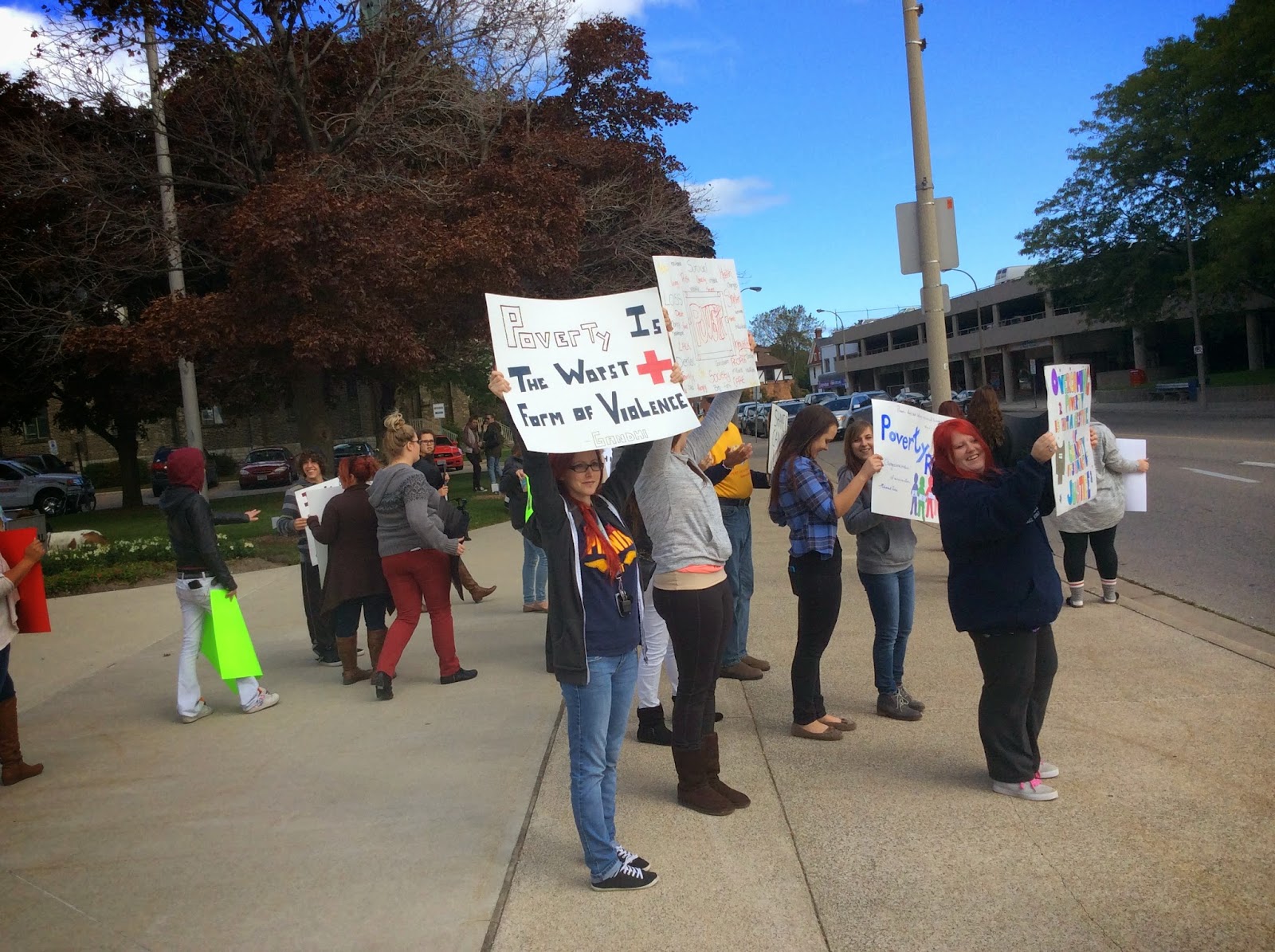 On October 12, 2014, I stood in the sunshine outside of Sarnia’s
city hall to join many other members of the Lambton College and broader community
in the Stand up Against Poverty Rally.
On October 12, 2014, I stood in the sunshine outside of Sarnia’s
city hall to join many other members of the Lambton College and broader community
in the Stand up Against Poverty Rally.
The event is held in conjunction with the United Nation's
International Day for the Eradication of Poverty, which falls this year on
October 17.
On the front steps of city hall, we listened to local experts
outline the story of poverty in Ontario. Their statistics surprised me:
one in eight Canadian families worries about finding enough food. More than
900,000 Canadians depend on local food banks each month. A third of the
Canadians who rely on a food bank are children (see chewonthis.ca). We
also heard from Renee Flynn, a Leader with the Circles program, and Myles Vanni,
Executive Director of Sarnia’s Inn of the Good Shepherd, about the costs of
poverty on individual families.
Despite these overwhelming statistics, I left the rally feeling
like there is hope for change. As the speakers shared stories and statistics,
Lambton College students from the Social Service Worker program waved their protest signs at passing motorists.
Their signs said things like
“Don't be foolish, don't be crazy—lack of
money doesn't make them lazy.”
“Poverty is the worst form of violence.” -Gandhi
“You can't eat sympathy.”
The honks of support often drowned out the speakers. Of course,
there were likely motorists who were unaware of the details of what they were
honking for, just as there may have been folks who wandered in to the
rally without knowing what it was about. But that’s okay—there were others who
left city hall that day with a better understanding of the price of poverty in
our community.
If you want to tell the federal government that you'd like to see
a Federal Poverty Reduction Plan—and substantial and lasting change for the
Canadian families living in poverty—visit ChewOnThis.ca and sign the petition you'll find there.
-Erica Kelly, Project Lead, Centre for Social Justice




